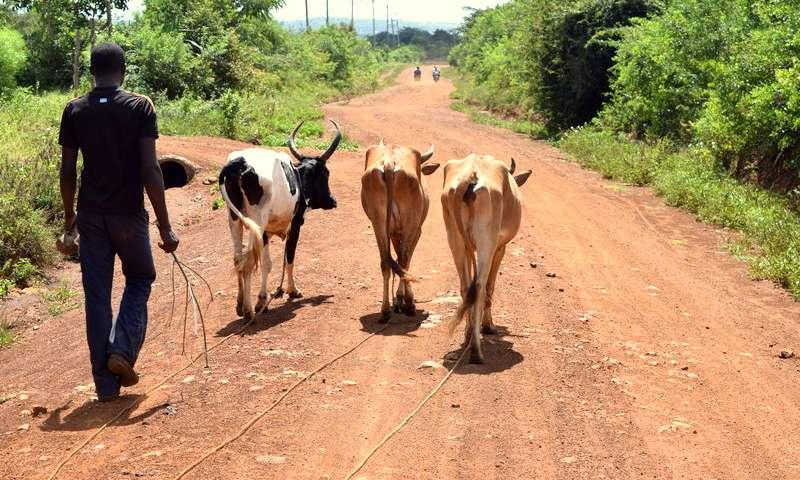SAGANA, Kenya, March 5 (Xinhua) -- The Kenyan government announced on Sunday that it will spend 2.15 million U.S. dollars for cash payouts to support pastoralists to purchase fodder and animal feed for their stock until the end of the severe drought.
State House Spokesperson Manoah Esipisu told journalists that President Uhuru Kenyatta will this week formally launch the payouts to the affected pastoralists.
"Vulnerable pastoralists in Mandera, Marsabit, Isiolo, Tana River, Turkana and Wajir counties will benefit from the 2.15 million dollars payout," Esipisu told journalists at Sagana State Lodge in central Kenya.
The payments under the Kenya Livestock Insurance Programme will target 12,604 registered pastoralist households in the seven counties. Some 2,503 pastoralists in Turkana that are registered under the program were paid last month.
Esipisu said the government will enhance the measures to mitigate the drought. Animal herders have been one of the biggest causalities of the drought.
Farmers of key export crops such as tea are also being affected by the lack of rainfall that has led to water rationing in many urban centers.
The drought which began last year has affected 23 counties so far. Humanitarian organizations estimate that at least 3 million people are in need of food aid. The East African nation has also introduced a program to supply food to schools which will in turn reduce the school fees for students.
Esipisu said water trucking in the 23 affected counties has been enhanced and the government has rehabilitated boreholes experiencing pressure due to long hours of pumping water.
Esipisu also cited the animal off take program where the government is buying off animals and slaughtering them for the pastoralists.
The aim of the off take project is to put capital in the pocket of the pastoralists so that they can restock when the drought ends.
"In terms of provision of food, the administration has doubled up food rations to feed 3 million people, up from an initial figure of 1.3 million Kenyans. We are doing this through special programs," said Esipisu.




 A single purchase
A single purchase









